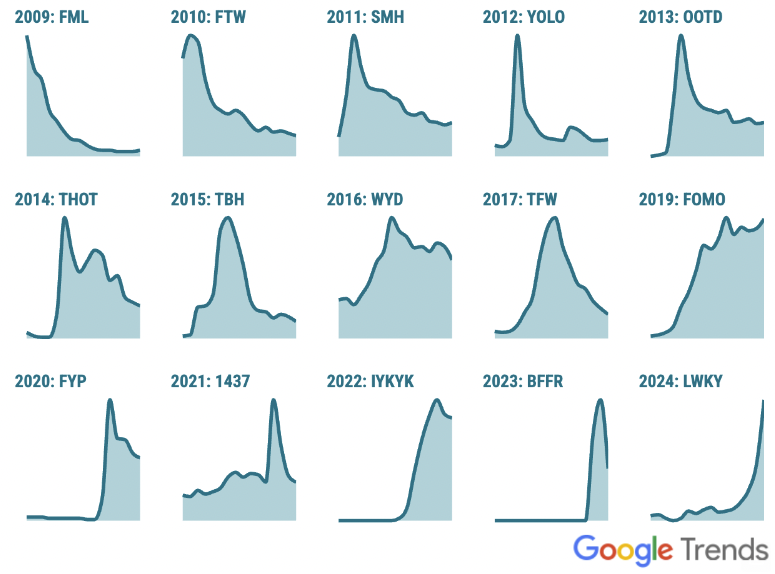Welcome to our comprehensive guide comparing Valium and Klonopin, two commonly prescribed benzodiazepine medications used for the treatment of anxiety and other related conditions. In this article, we will delve into the similarities and differences between these medications, their efficacy, cost and coverage, as well as their potential side effects. By the end, you’ll have a better understanding of which medication may be more suitable for your specific needs.

Key Takeaways:
- Valium (diazepam) and Klonopin (clonazepam) are both benzodiazepine medications used for anxiety and other conditions.
- Valium has a longer half-life and slower onset of action compared to Klonopin.
- Valium is available in various forms, including tablets, injections, oral solutions, and rectal gel, while Klonopin comes in oral tablet and orally disintegrating tablet forms.
- Valium is indicated for anxiety disorders, alcohol withdrawal, and muscle spasms, while Klonopin is used for panic disorders, seizure disorders, and certain types of epilepsy.
- The choice between Valium and Klonopin depends on individual factors such as medical condition and healthcare provider assessment.
Differences between Valium and Klonopin
Valium (diazepam) and Klonopin (clonazepam) have several key differences that set them apart from each other. These differences include their generic names, forms of administration, and pharmacokinetics.
Valium, also known by its generic name diazepam, is available in various forms such as tablets, injection, oral solution, and rectal gel. On the other hand, Klonopin, or clonazepam, is predominantly available as an oral tablet and orally disintegrating tablet.
One significant difference between Valium and Klonopin lies in their pharmacokinetics. Valium is considered a long-acting benzodiazepine, with a half-life of up to 100 hours, while Klonopin is classified as intermediate-acting, with a half-life of 30-40 hours.
To help visualize these differences, refer to the table below:
| Feature | Valium (diazepam) | Klonopin (clonazepam) |
|---|---|---|
| Generic Name | Diazepam | Clonazepam |
| Forms of Administration | Tablets, injection, oral solution, rectal gel | Oral tablet, orally disintegrating tablet |
| Pharmacokinetics | Long-acting, half-life up to 100 hours | Intermediate-acting, half-life 30-40 hours |
It’s important to note that these are just a few of the differences between Valium and Klonopin. It’s recommended to consult with a healthcare professional to determine which medication is most suitable for your specific needs.
Conditions Treated by Valium and Klonopin
Valium (diazepam) and Klonopin (clonazepam) are both used to treat various conditions, although they differ in their specific indications.
Anxiety Disorders
Valium is indicated for the treatment of anxiety disorders, including generalized anxiety disorder (GAD), panic disorder, and social anxiety disorder. It helps to reduce excessive worry, tension, and anxiety symptoms associated with these conditions. Klonopin is also used for the treatment of panic disorder, which is characterized by sudden and recurrent episodes of intense fear or discomfort.
Alcohol Withdrawal
In addition to anxiety disorders, Valium is also prescribed for the short-term relief of symptoms related to acute alcohol withdrawal. It helps to alleviate agitation, tremors, hallucinations, and other symptoms that may occur when an individual stops drinking alcohol abruptly. Klonopin is not specifically indicated for alcohol withdrawal.
Muscle Spasm Conditions
Valium is used to treat muscle spasms caused by conditions such as cerebral palsy, spinal cord injuries, and certain neurological disorders. It works by relaxing the muscles and reducing muscle tension. Klonopin is not indicated for the treatment of muscle spasms.
| Condition | Valium | Klonopin |
|---|---|---|
| Anxiety Disorders | ✔️ | ✔️ |
| Panic Disorder | ✔️ | ✔️ |
| Social Anxiety Disorder | ✔️ | ❌ |
| Alcohol Withdrawal | ✔️ | ❌ |
| Muscle Spasm Conditions | ✔️ | ❌ |
It is important to note that these medications should only be used under the guidance of a healthcare professional and should be taken as prescribed. They may have potential risks and side effects, and individual responses may vary. Consult with a healthcare provider for a comprehensive assessment of your condition and the appropriate treatment options.
Efficacy of Valium vs Klonopin
When it comes to evaluating the effectiveness of Valium and Klonopin, it is important to consider the specific conditions being treated. Valium has been found to be effective in managing anxiety disorders, providing short-term relief from anxiety symptoms, and treating acute alcohol withdrawal. Additionally, Valium has shown efficacy in relieving muscle spasms.
Klonopin, on the other hand, is primarily indicated for panic disorders and seizure disorders. It is a commonly prescribed medication for individuals experiencing panic attacks and has proven effectiveness in reducing the frequency and severity of seizures.
It is essential to note that the choice between Valium and Klonopin should be based on an individual’s medical condition and the assessment of their healthcare provider. Each person’s response to medication can vary, and the effectiveness may depend on factors such as the severity of the condition and the presence of any underlying medical issues.
| Condition | Valium | Klonopin |
|---|---|---|
| Anxiety Disorders | ✓ | |
| Short-term Relief of Anxiety Symptoms | ✓ | |
| Acute Alcohol Withdrawal | ✓ | |
| Muscle Spasms | ✓ | |
| Panic Disorders | ✓ | |
| Seizure Disorders | ✓ |
Quote:
“Valium has been my go-to medication for anxiety disorders, and I have seen significant improvement in my symptoms since starting the treatment. However, for my friend who suffers from regular panic attacks, Klonopin has been a life-changing medication.”
In conclusion, Valium and Klonopin demonstrate efficacy in different areas, with Valium being effective for anxiety disorders, alcohol withdrawal, and muscle spasms, while Klonopin is mainly indicated for panic disorders and seizure disorders. The decision to use one medication over the other should be based on individual needs and the guidance of a healthcare professional.
Valium and Klonopin Insurance Coverage and Cost Comparison
When it comes to insurance coverage, both Valium and Klonopin are typically covered by insurance and Medicare Part D. This means that individuals who have insurance plans or Medicare can usually receive coverage for these medications. However, it is important to check with your specific insurance provider to confirm the coverage details.
When comparing the cost of Valium and Klonopin, the generic forms of diazepam (Valium) and clonazepam (Klonopin) are generally less expensive than their brand-name counterparts. The cost of these medications can vary depending on several factors such as the dosage, quantity, and location. It is recommended to consult with your pharmacist or healthcare provider to get an accurate estimate of the out-of-pocket cost.
For those who are looking to save on the cost of Valium and Klonopin, discount programs such as SingleCare can be a helpful resource. These programs provide discounts on prescription medications, including Valium and Klonopin. By using a discount program, individuals may be able to significantly lower the cost of their medication, making it more affordable and accessible.
| Medication | Insurance Coverage | Cost (Generic) | Cost (Brand-name) |
|---|---|---|---|
| Valium | Usually covered by insurance and Medicare Part D | Less expensive than brand-name | More expensive than generic |
| Klonopin | Usually covered by insurance and Medicare Part D | Less expensive than brand-name | More expensive than generic |
It is important to note that insurance coverage and costs may vary depending on individual plans, so it is always advisable to check with your insurance provider or pharmacist for the most accurate and up-to-date information on coverage and cost.
Side Effects of Valium and Klonopin
Like any medication, Valium and Klonopin can cause side effects. Common side effects of both drugs include drowsiness, fatigue, muscle weakness, and dry mouth. These side effects are usually mild and go away on their own as your body adjusts to the medication. However, if these side effects persist or worsen, it is important to consult your healthcare provider.
In some cases, Valium and Klonopin may cause more serious side effects. These can include confusion, memory problems, difficulty breathing, and allergic reactions. If you experience any of these symptoms, you should seek immediate medical attention.
“I started taking Valium for my anxiety, and while it helped calm my nerves, I experienced drowsiness and fatigue. However, these side effects lessened over time and did not interfere with my daily activities.” – Valerie, Valium user
Table: Common Side Effects Comparison
| Common Side Effects | Valium | Klonopin |
|---|---|---|
| Drowsiness | ✓ | ✓ |
| Fatigue | ✓ | ✓ |
| Muscle Weakness | ✓ | ✓ |
| Dry Mouth | ✓ | ✓ |
It is important to note that side effects can vary from person to person. While some individuals may experience no side effects, others may have a different response to the medication. It is always recommended to consult with your healthcare provider before starting any new medication to understand the potential side effects and risks.
Conclusion
In conclusion, Valium (diazepam) and Klonopin (clonazepam) are both valuable medications for the treatment of anxiety disorders and other related conditions. However, they do have distinct differences that should be considered when making a choice between the two.
When comparing Valium and Klonopin, it’s important to note that Valium has a longer half-life and slower onset of action, while Klonopin has a shorter half-life and faster onset. The choice between the two will depend on individual needs, such as the severity of their anxiety symptoms and their desired effects.
Furthermore, Valium is indicated for anxiety disorders, alcohol withdrawal symptoms, and muscle spasms, while Klonopin is primarily indicated for panic disorders, seizure disorders, and certain types of epilepsy. The specific condition being treated will play a role in determining which medication is most suitable.
Ultimately, it is crucial to consult with a healthcare provider to assess one’s individual medical condition and determine the most suitable medication. The choice between Valium and Klonopin should be made in collaboration with a healthcare professional to ensure the best possible treatment outcome.
FAQ
What is the difference between Valium and Klonopin?
Valium (diazepam) and Klonopin (clonazepam) have different generic names, forms of administration, half-lives, and onset of action. Valium is considered a long-acting benzodiazepine, while Klonopin is intermediate-acting.
What conditions are treated by Valium and Klonopin?
Valium is indicated for anxiety disorders, short-term relief of anxiety symptoms, acute alcohol withdrawal, and muscle spasm conditions. Klonopin is indicated for panic disorders, seizure disorders, and certain types of epilepsy. Valium is also used off-label for seizure treatment.
How effective are Valium and Klonopin?
The effectiveness of Valium and Klonopin depends on the specific condition being treated. Valium is effective for anxiety disorders, alcohol withdrawal symptoms, and muscle spasms. Klonopin is effective for panic disorders and seizure disorders.
Are Valium and Klonopin covered by insurance?
Both Valium and Klonopin are generally covered by insurance and Medicare Part D. The generic forms of diazepam and clonazepam are less expensive than their brand counterparts.
What are the common side effects of Valium and Klonopin?
Common side effects of Valium and Klonopin include drowsiness, fatigue, muscle weakness, and dry mouth. Each medication may have additional side effects specific to them.

